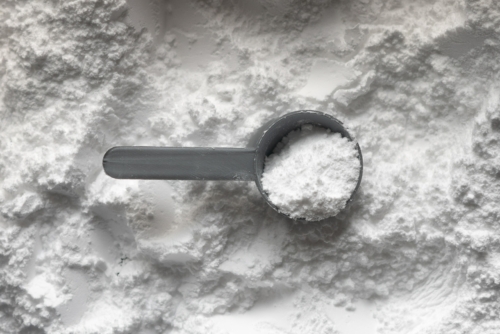You probably don’t need protein powder
Just like a name brand shoe that didn’t seem to exist before, and then appears on feet everywhere, it feels like everyone is using protein powder these days. There is certainly a big push for it by so-called influencers on social media (spoiler alert: they are paid money to hawk items) and ultra-processed food companies (yes, protein powder is an ultra-processed product) make a ton of money off of them (protein powders are usually made from waste products of industrial production of other processed foods and then marked up heavily at every stop on the supply chain).
 Rule of thumb: where people can make lots of money in the food and supplement industry, expect to find products heavily promoted, especially products we don’t really need. As a wise person once told me—no one has to advertise the stuff you actually need.
Rule of thumb: where people can make lots of money in the food and supplement industry, expect to find products heavily promoted, especially products we don’t really need. As a wise person once told me—no one has to advertise the stuff you actually need.
So, here are some reasons why you probably can save yourself the $30 a bag—hopefully you haven’t been paying more than that.
- Protein powder isn’t likely to help you build more muscle—Americans are not protein deficient. We get lots of it and certainly enough of it to build muscle. You can absolutely build muscle eating a normal diet and even a vegetarian or vegan one. How do you think cows build their muscle in the first place? If you are an elite athlete or body builder and have reached your chicken, egg, bean, and peanut butter limit, your body might need more protein. If you are not an elite athlete or gym rat, save your money on protein supplements.
- Protein powder isn’t likely to help you lose weight—it might even make you gain weight. Protein has 4 calories per gram. If you are adding it to your regular diet, you are adding extra calories. Now, that isn’t a bad thing if you are trying to gain weight for some reason, but if you are trying to lose it, protein powder isn’t likely to help. While there is some evidence that protein can fill us up, when food components are taken out of their natural food homes and become more easily digested, they can do unexpected things. Like most ultra-processed foods, just what those things are, are usually discovered years later.
- Protein powder contains a bunch of additives you definitely don’t need and that aren’t all that healthy. On the ingredient list of almost every one I looked at there were sugar substitutes (which the WHO recently put out a warning on), maltodextrin (linked to inflammatory bowel disease/colitis and metabolic issues), and all kinds of gums (linked to colitis and irritable bowel syndrome). While there are some brands that don’t have these fillers, they tend to be more expensive and harder to find. But if you just must have protein powder in your life, try to find one of them.
- Real food contains…wait for it…protein and is actually healthy! Anything protein powder can do, real food can do better. If you are just looking for a quick breakfast, try using additive-free Greek yogurt and your favorite nut butter in a smoothie in the morning. Or hard boil some eggs to keep in the fridge to grab and go on busy days. Chia puddings, that take a couple of minutes to put together are also a great protein-rich way to start the day.
Basically, when you see an ad for protein powder, buyer beware. Save your money to buy those expensive sneakers that seem to be everywhere instead.
